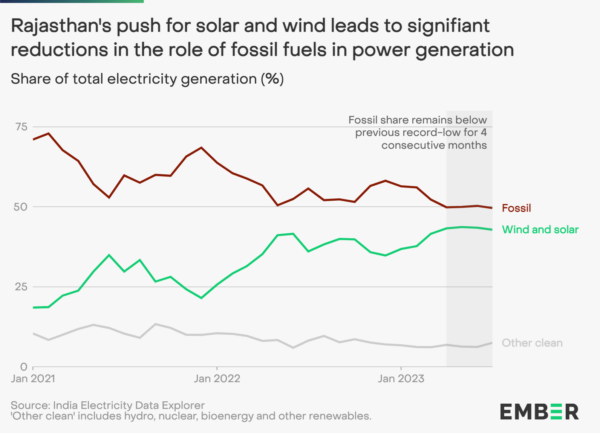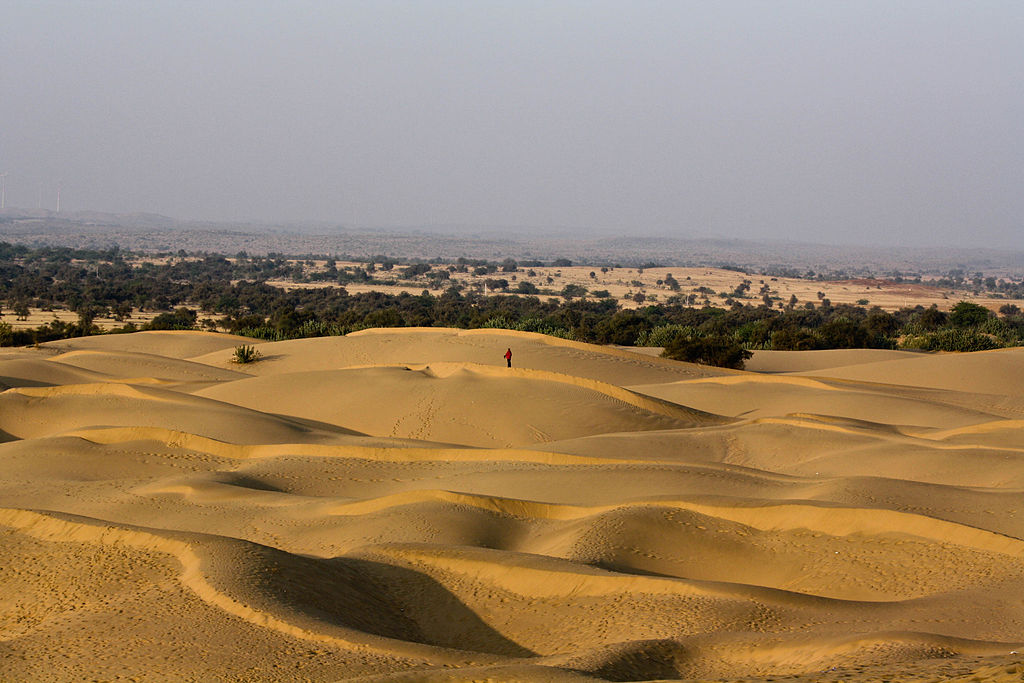The share of fossil fuels in Rajasthan’s power generation mix hit record-low levels at 50% from April to July. This is the first time that the lowest level was sustained for over a quarter of the year, according to a new report by Ember.
Fossil fuels produced 34 TWh of electricity from January to July 2023, showing no growth (-1.6%) in comparison to the same period in 2022. Meanwhile, solar and wind power generation grew 28% year-on-year to 27 TWh. Solar and wind combined with other RE sources including nuclear, hydro, and bioenergy make clean power generation in Rajasthan now on par with fossil generation.

From January to July 2023, electricity generation in Rajasthan increased by 4.4 TWh YoY fuelled by a growth in solar and wind. As a result, the carbon emissions intensity of power produced in Rajasthan in July 2023 was 422 gCO2e/kWh, 10% lower than in July 2022.
The state of Rajasthan has pushed for the deployment of solar and wind power fleets by administering its Solar Energy Policy and Wind Hybrid Energy Policy in 2019. In addition, the rise in demand for clean power in other states such as Delhi is attracting investments in Rajasthan, a state with the highest solar potential across the country, the report stated.
From January to July 2023, Rajasthan added 1.7 GW of solar and 500 MW of wind capacity. As of July 2023, Rajasthan’s solar and wind capacity stood at 23 GW, accounting for 20% of India’s solar and wind capacity. Meanwhile, fossil fuel (coal and gas) based generation capacity has remained unchanged since 2022.
As a nation, India generated over 70% of its electricity from fossil fuels throughout 2023 (up to July), and 77% of its electricity across the whole of 2022.
This content is protected by copyright and may not be reused. If you want to cooperate with us and would like to reuse some of our content, please contact: editors@pv-magazine.com.









2 comments
By submitting this form you agree to pv magazine using your data for the purposes of publishing your comment.
Your personal data will only be disclosed or otherwise transmitted to third parties for the purposes of spam filtering or if this is necessary for technical maintenance of the website. Any other transfer to third parties will not take place unless this is justified on the basis of applicable data protection regulations or if pv magazine is legally obliged to do so.
You may revoke this consent at any time with effect for the future, in which case your personal data will be deleted immediately. Otherwise, your data will be deleted if pv magazine has processed your request or the purpose of data storage is fulfilled.
Further information on data privacy can be found in our Data Protection Policy.